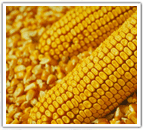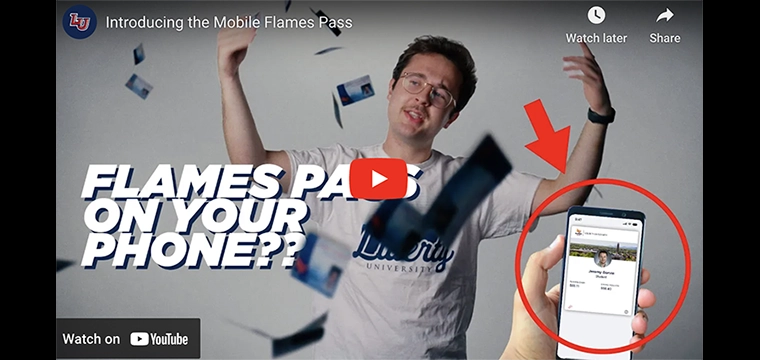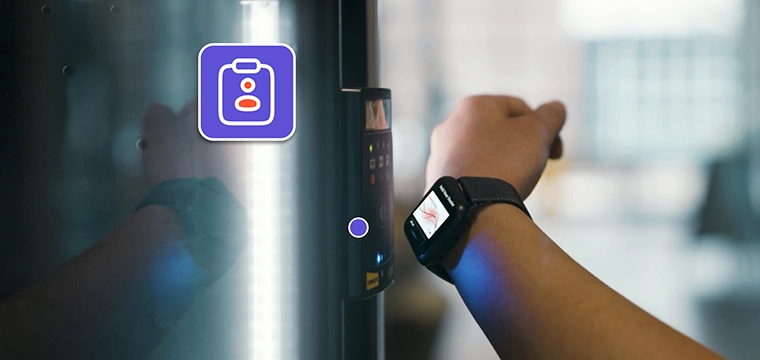 Higher cost and lower market demand slows the adoption of PVC’s biodegradable rival … for now
Higher cost and lower market demand slows the adoption of PVC’s biodegradable rival … for now
By Marisa Torrieri, Contributing Editor
It sounds corny to some, but the latest card en route to consumers’ wallets promises the same durability of traditional petroleum-based (PVC) cards without using up one of Earth’s most valuable and dwindling resources … oil.
A new card made from processed corn got a big push when card manufacturer Arthur Blank & Co. (ABCO) announced last month it is ready to roll out millions of the regurgitated stalks for environmentally conscious retailers – whether they’re producing gift cards or highly secure access control or ID cards.
 Called “CornCard USA” by Arthur Blank & Co., the card itself can be composted, incinerated and mechanically recycled in industrial facilities. This new corn-based card can be used in the same applications as the more traditional petroleum-based counterparts. The CornCard USA may be printed with most of the special inks and panels Arthur Blank offers, and with a number of security measures (i.e., specialized inks only visible with infrared and black light readers, or Guilloche printing).
Called “CornCard USA” by Arthur Blank & Co., the card itself can be composted, incinerated and mechanically recycled in industrial facilities. This new corn-based card can be used in the same applications as the more traditional petroleum-based counterparts. The CornCard USA may be printed with most of the special inks and panels Arthur Blank offers, and with a number of security measures (i.e., specialized inks only visible with infrared and black light readers, or Guilloche printing).
While CornCard still reportedly costs nearly 10 percent more than PVC, Arthur Blank’s new rollout isn’t the only indication that these cards should be taken seriously. Major corporations such as Microsoft and Wal-Mart have said they are seeking renewable resource alternatives to traditional packaging, notes Jake Jacobs, vice president of sales for Arthur Blank & Co.
“Unlike petroleum-based cards, corn-based cards can be mechanically recycled, composted (this takes several years) and won’t release toxins when burned,” says Mr. Jacobs. “Creating the resin from corn also produces much less harmful gas than producing plastic from petroleum. On a small scale, this isn’t as big a deal, but when you consider Arthur Blank & Co. used 8 million pounds of raw materials last year for gift cards alone, you can clearly see the environmental benefits of using corn-based cards.”
You can’t eat them, but you can swipe them: Cards look, feel the same as PVC
Processing corn cards involves several steps, explains Todd Niemuth, marketing manager for Spartech Corporation, the “plastic sheet extruder” company that makes CornCard USA Sheets for Arthur Blank & Co. Spartech competes with PVC sheet extruders, using the process of fermentation, followed by polymerization.
The process of corn polymerization, the first step in making corn cards, is similar for both corn- and oil-based plastics, explains Mr. Niemuth, who notes that the process is just as complex for both corn and oil plastic. Conducted by NatureWorks for Spartech and ultimately, for Arthur Blank & Co., the process involves turning raw materials into tiny pellets.
First, the corn is planted, harvested, then sent to a milling plant where starch is separated and isolated from other components. The starch is converted to sugar. Then, through a fermentation process much like making wine or whiskey, micro organisms convert the sugar into a lactic acid, which ignites the biological process of polymerization. The polymer, or plastic, is formed into pellets that are sold to Spartech.
“The most environmentally significant difference is that PVC is derived from oil, something that takes millions of years to regenerate, while PLA is derived from corn, a plant that grows in roughly 100 days,” Mr. Niemuth says.
Then, the sheet extruder takes the pellets and mixes its own proprietary blend of chemical additives to give the corn-spawned plastic better strength, before flattening it into thin sheets that look like a thick sheet of paper.
“You can get 60 cards out of one sheet of plastic,” Mr. Niemuth says.
After the sheet extruder turns the pellets into sheets, they are then shipped to Arthur Blank & Co., which adds its own, top-secret binding formula to the sheets before churning out the corn cards. The formula, developed by ABCO, is necessary to prevent problems such as ink bleeds and cards that curl at the edges. The formula is a result of several years of trial and error, as bad printing and imperfect cards were an industry-wide problem for years, Mr. Jacobs says.
What will turn corn into a corporate cashpot?
If the cost of oil continues to rise, it won’t be long before both card manufacturers and retailers start following Arthur Blank’s lead by investing in alternative resources.
But for now, the biggest challenge to adoption is that retailers are not demanding the CornCard, say a number of Arthur Blank’s manufacturing competitors.
Versatile Card Technology (VCT), for instance, makes a huge range of cards for a variety of industries, but according to a source, the company won’t consider making CornCards without customer demand.
“They’re really expensive,” says a VCT spokesman. “It’s more client-driven,” and clients are interested in “highest print quality at lowest price.” PVC cards are industry standard and CR80 cards cost 10 cents apiece, the spokesman notes.
Should environmentally conscious vendor such as Whole Foods Market want to order one million corn cards, however, VCT would jump on the chance to make them, the spokesman adds. Until then, “PVC’s a very rugged, durable material,” the VCT spokesman says.
But Mr. Niemuth believes that all of the leading card manufacturers are definitely keeping plans to manufacture corn cards. While the cost of corn remains stable, oil prices continue to skyrocket. When the price of making CornCard USA becomes more competitive, manufacturers will become even more accommodating.
“I think it’s safe to say every non-secure card manufacturer in the top 10 has asked us for trial material, and has it or will get it soon,” Mr. Niemuth says. “That doesn’t necessarily mean they have demand, but there’s a tremendous amount of interest.”
Additional resources:
To visit Arthur Blank & Co. on the web, click here.
To visit Spartech Corporation on the web, click here.
To visit Natureworks PLA on the web, click here.




